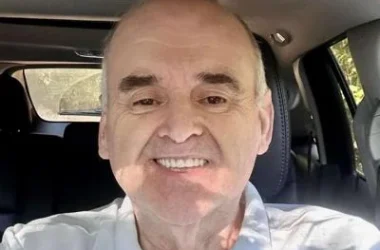CHARLESTON, W.Va. — After eight months and two failed inspections, Responsible Pain & Aesthetic Management in Beckley recently became only the fifth licensed pain clinic in West Virginia.
The clinic finally got the state’s OK after moving to a new facility and selling a 1 percent ownership interest to the doctor who sees patients there.
West Virginia’s year-old pain clinic rules require a “dedicated physician-owner” to have “care and control” of each practice, but the regulations say nothing about owners with a minimal stake.
“We didn’t think about a 1 percent interest,” said Jolynn Marra, director of the state Office of Health Facility Licensure and Certification. “The whole intent was to have someone there, an owner vested in the outcome of the clinic, not just someone there for fly-by-night kind of things.”
Now, Marra’s office — a division of the Department of Health and Human Resources — is trying to close loopholes in West Virginia’s pain clinic law.
The DHHR has proposed numerous changes to pain clinic rules that have been on the books since last year. People have until Sunday night to submit comments.
Recent inspections of pain clinics across the state — and the creative steps clinics like Responsible Pain & Aesthetic Management have taken to comply — prompted the government to take a second look at the regulations.
“With the laws that we pass, you’re always having to improve the mousetrap,” said Sen. Ron Stollings, D-Boone, a Madison doctor. “These folks are smart. You have savvy people figuring out the system and going around it.”
Perhaps the biggest proposed rules change: The pain clinic’s physician-owner would have to have at least a 25 percent ownership stake in the practice.
“If the original intent was to have real ownership, that’s probably a reasonable thing,” Stollings said. “The whole idea is to try to get rid of the ‘pill mills.’ ”
The Beckley pain clinic failed its first state inspection primarily because its “designated physician-owner” didn’t have the proper credentials and training.
Responsible Pain hired a doctor certified in pain management and sold him a 1 percent ownership interest, but the state rejected the clinic’s application for a license a second time, saying the physician didn’t have “care and control” of the clinic. Under the rules, doctor-owners must work at their clinics at least 32 hours a week.
State inspectors also cited Responsible Pain for having a cramped waiting room, no public restroom and insufficient parking — the Beckley clinic was seeing as many as 88 patients a day.
But after moving to a more spacious location and rectifying all the doctor-ownership issues, the pain clinic secured its license on June 9.
“We felt they met the minimum requirements for licensure,” Marra said. “They worked pretty hard to correct their deficiencies. We didn’t realize they would be able to remedy it by selling a partial amount of their business, but they did.”
Dr. J.J. Gordinho, the Beckley pain clinic’s principal owner, makes no apologies for selling the 1 percent stake to the doctor who runs the practice day-to-day. Gordinho said he’s playing by the rules, not trying to skirt them.
“The 1 percent is because they wanted a doctor with a percentage interest,” said Gordinho, who owns the other 99 percent. “Whether he’s the owner or not, he’s getting a substantial salary to work. Whether he’s the owner or not, that’s really irrelevant.”
Gordinho opposes the rules change that would bump up the required ownership interest to 25 percent. He expects other pain clinic owners also to fight the proposal.
“I have a thriving practice,” Gordinho said. “Why would I give anybody 25 percent of my practice?”
To make matters worse, Gordinho said, the change would force doctors to apply for new license numbers to bill Medicaid and insurance companies, under federal rules. The application process takes four to six months.
“I told Jolynn [Marra] and the others in her group to tell me what they want me to do and I’ll do it, but don’t change the rules in the middle of the game like this,” he said.
The proposed rules changes follow a statewide crackdown on pain-management clinics. Five clinics — including Hope Clinic in Kanawha City — have been shuttered this year after the state refused to issue licenses.
For years, West Virginia’s pain clinics essentially went unchecked unless a patient filed a complaint against a doctor or nurse through a medical licensing board. State officials have estimated that nearly 60 pain clinics could be operating in West Virginia.
In 2012, lawmakers passed a sweeping substance-abuse bill — backed by Gov. Earl Ray Tomblin — that established regulations for pain clinics. The law requires clinics to be licensed, provided that more than half of patients are being treated for chronic pain unrelated to cancer.
The state enacted rules in 2013, but the pain clinic licensing program didn’t receive funding and start running until last year.
Stollings said the new rules have had unintended consequences. Some legitimate physician practices are turning away people who take pain medications, fearing those patients will put their offices over the 50-percent threshold that requires a pain clinic license. And that would force doctors and staff to get specialized training and credentials that most small practices can’t afford.
“If patients can’t get in to see a primary care doctor, they turn to the hospital emergency room or ‘doctor shopping,’ and so that’s really bad,” Stollings said. “With the arbitrary 50 percent rule, you’re restricting access to care.”
One of the DHHR’s proposed rules changes seems to make it easier for practices to stay under that limit. The agency wants to eliminate a provision that calculates the percentage of pain patients based on the highest number of patients in any given month each year.
Other proposals tighten rules about patient records and care. Only licensed medical professionals would be able to conduct physical exams. Recent inspections revealed that two pain clinics in West Virginia were using retired police officers — with no medical training — to take patients’ blood pressure and other vital signs.
Delegate Matthew Rohrbach, R-Cabell, said the state must “strike a balance” with its pain clinic rules.
“The vast majority of physicians are writing legitimate prescriptions for patients, and we need to be sensitive to people with chronic pain,” said Rohrbach, a Huntington doctor. “But I have no stomach at all for physicians who are unethically writing these prescriptions for their own profit and gain. We can’t do enough to get rid of those charlatans.”
Gordinho said the state is going overboard and punishing law-abiding pain clinics like his. He said many rogue clinics don’t apply for state licenses and, thererfore, avoid scrutiny.
“This program is just another way the state is looking to close legitimate pain clinics,” he said. “When you have only five licensed pain clinics in the entire state, something is wrong.”
Reach Eric Eyre at [email protected], 304-348-4869 or follow @ericeyre on Twitter.




